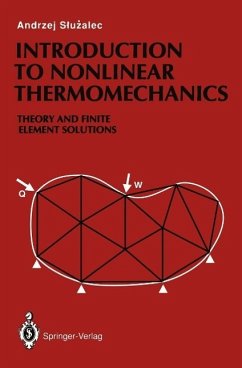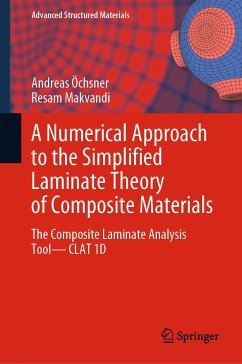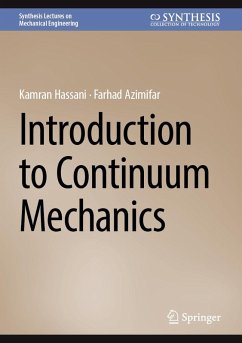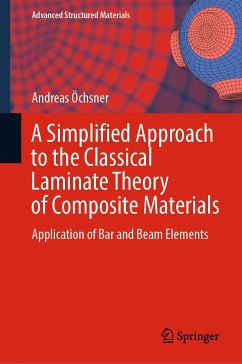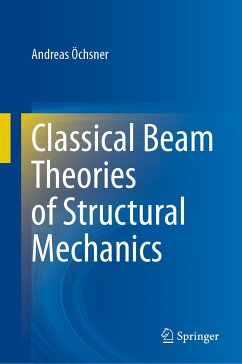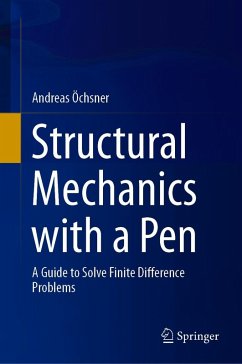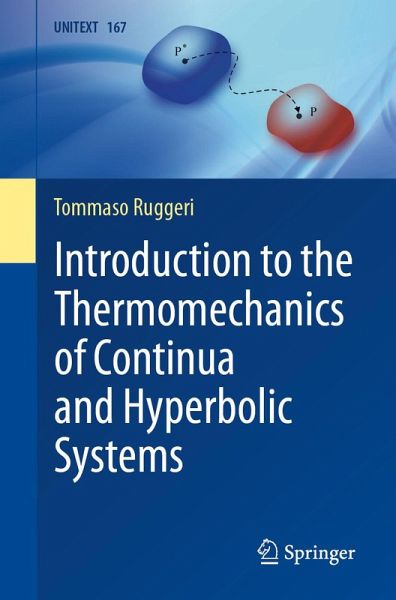
Introduction to the Thermomechanics of Continua and Hyperbolic Systems (eBook, PDF)
Versandkostenfrei!
Sofort per Download lieferbar
112,95 €
inkl. MwSt.
Weitere Ausgaben:

PAYBACK Punkte
56 °P sammeln!
The primary aim of this book is to present a unified treatment of the thermomechanics of continua using the axiomatic approach typical of rational mechanics. While many books on continuum mechanics focus on specific types of continuous bodies, such as deformable solid bodies or fluids, this book adopts a general perspective. It presents the mathematical structure of balance laws and constitutive equations as a cohesive whole, with special attention given to the modern theory of constitutive equations. Notable principles such as the principle of material indifference and the contemporary interp...
The primary aim of this book is to present a unified treatment of the thermomechanics of continua using the axiomatic approach typical of rational mechanics. While many books on continuum mechanics focus on specific types of continuous bodies, such as deformable solid bodies or fluids, this book adopts a general perspective. It presents the mathematical structure of balance laws and constitutive equations as a cohesive whole, with special attention given to the modern theory of constitutive equations. Notable principles such as the principle of material indifference and the contemporary interpretation of the principle of entropy are emphasized. This book will be beneficial not only to engineering students but also to students from other scientific disciplines where aspects of continuum mechanics are studied. It provides an opportunity to view traditionally distinct topics in a broader, interconnected context. To ensure self-consistency, the first part of the book addresses issues related to linear algebra, with a particular focus on linear operators within finite-dimensional vector spaces. The book then offers a detailed exploration of finite deformations of continua, followed by an overview of kinematics. It characterizes the various forces that can exist in a continuum, introduces the stress tensor, and presents the balance laws in both Eulerian and Lagrangian forms. Next, the modern theory of constitutive equations is defined, emphasizing the role of the general principles of material indifference and entropy as criteria for selecting physically acceptable classes of constitutive equations. The resulting field equations are specialized for various cases, including thermoelasticity, Eulerian fluids, Fourier-Navier¿Stokes fluids, and rigid heat conductors. In the final part of the book, partial differential equations in continuum mechanics are discussed, with particular attention given to hyperbolic systems. The method of characteristics is introduced in both linear and nonlinear cases, and the need to expand the class of solutions by introducing weak solutions is discussed, with shock waves being a significant case. As an illustrative example of a weak solution, the Riemann problem is presented for the fluid dynamic model of vehicular traffic, where cars are initially stopped at a red light and then start moving when the light turns green.
Dieser Download kann aus rechtlichen Gründen nur mit Rechnungsadresse in A, B, BG, CY, CZ, D, DK, EW, E, FIN, F, GR, HR, H, IRL, I, LT, L, LR, M, NL, PL, P, R, S, SLO, SK ausgeliefert werden.




